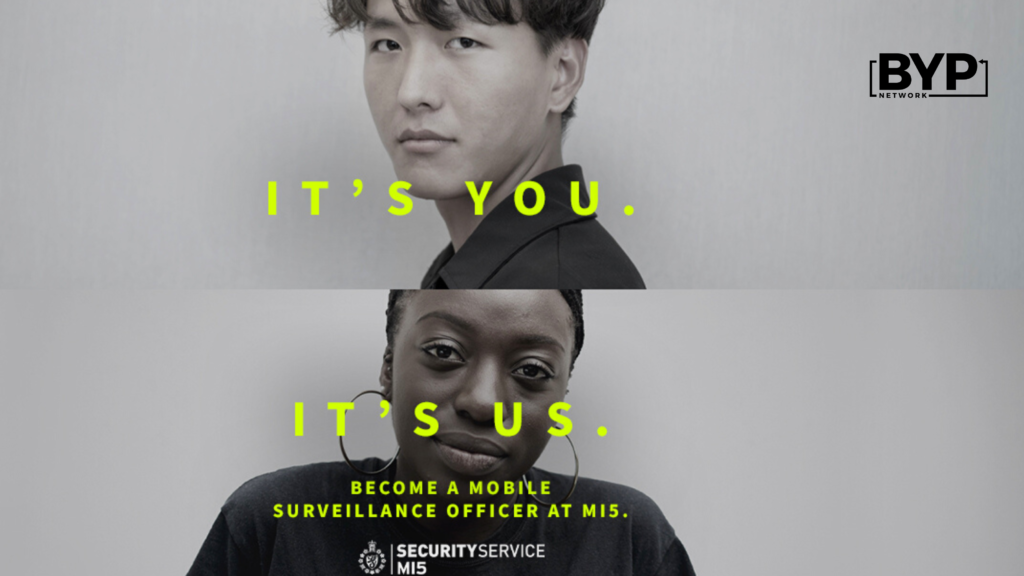You’ve seen it in a million films and TV shows: a suspect being trailed in a subtle game of cat and mouse. Whether on foot or on the road, surveillance involves a delicate balance of staying close enough to gather intelligence without arousing suspicion. Think it’s fantasy movie stuff? Think again.
Following ‘subjects of interest’ is an actual job, with a salary and pension. Mobile Surveillance Officers (MSO) work for MI5, which protects the country from threats such as terrorism, espionage and cyber-crime. While MSOs are professionals who receive a high level of training, you don’t have to speak five languages and have a black belt in karate to be one. They’re ordinary people like you and me, trained to perform a vital role.
So what’s being an MSO actually like?
As an MSO, your morning starts like anyone else’s. The alarm goes off, you get ready and you go to the office. There, you catch up with the team and get your brief for the day. Here’s where you say goodbye to normal office-land.
MSOs follow people who are known to MI5 for various reasons. You’re there to gather the information that technology can’t – from behaviour that’s out of character to changes in expression. Where you are and what you do depends on who you’re following and why. Whatever your mission, you have to blend into the background, adapt quickly to changing circumstances and pay close attention to detail.
Once you’re fully prepped on who you’re following, it’s time to get out onto the streets. For many MSOs, this is the best part of the job.
“I wanted a purposeful job where I wouldn’t always be at a desk, so I loved the idea of being out and about helping to protect the UK. I was also intrigued by the variety of the MSO role and the constant challenges. It seemed like a job that would keep me on my toes. Now that I’m in the role, I can confirm that that’s the case! I’m learning new things all the time and feel like I’m becoming a better version of myself every day.”
Once you’re out ‘in the field’, the real work starts.
The goal is to keep the subject of interest in your sights and collect information about them and their movements wherever they go. This can involve reading maps under pressure, physically tracking the subject in a vehicle or following on foot.
If all of that sounds a little daunting, that’s quite normal. Don’t forget that you’ll be given specialist training by experienced MSOs to prepare you for the task. Every MSO goes through a rigorous 15-week training course, where they learn all the skills they need, including how to assess risks. On top of that, each MSO has their own personal mentor – an experienced officer – who’ll be on hand for the first six months. All you need to be is open to feedback and prepared to learn.
“The mobile surveillance course was incredibly challenging, and rightly so! It was also the most fun I’ve ever had and I met the most amazing people. I got to know London well and now consider myself a coffee connoisseur in various different areas around the city! The course itself was very well organised and run. The training exercises were always very realistic, and the instructors were always supportive and motivated to get us through the various phases.”
Before we go any further, here’s a little fact that might surprise you:
MSOs don’t need any special qualifications or experience – just a UK driving licence, an aptitude for teamwork, attention to detail, a cool head and initiative.
“I worried I’d be surrounded by just one type of person, but that couldn’t be further from the truth. There are so many different people from all walks of life. I also had this idea that it would be very formal and a bit intimidating. But everyone is so down to earth and it’s all very ‘normal’.”

Actually, there’s one other thing that MSOs need and that’s a reasonable level of fitness. If your suspect is walking quickly through city streets, you can’t afford to lose them because you need to stop for a rest! MI5 don’t expect you to be an athlete, but you do need to be able to be on your feet a lot and for long periods of time.
So, you’ve spent the day following a subject of interest, your step count is worth several pizzas and you’ve passed on everything that you’ve learned. Now your shift is officially over (and of course, you can’t take your work home) and you’re free to enjoy your evening.
So, there you have it: a typical day for an MSO. Although in all honesty, there is no ‘typical day’. When you next go into work, you could have a completely different kind of brief. And even if it’s similar, you should always expect the unexpected. The best MSOs thrive on this kind of variety – it’s anything but the typical 9 to 5. Especially as they work a mix of early, late and night shifts over five weeks, including two weekends in five. As intense as that sounds, it’s actually very manageable because you know all your shifts in advance. So, you can still plan that weekend away and pick up the kids from school.
MI5 does recognise what an important job their people do, including MSOs. That’s why they offer generous benefits including 25 days’ holiday, parental and adoption leave and a good pension scheme. But perhaps the best reward is knowing that your work’s incredibly valuable and worthwhile
“I applied for the role of MSO at MI5 because I wanted to be at the forefront of protecting national security, particularly against the threat of terrorism. One of my earliest memories was seeing 9/11 on the news and whenever I learned about a terrorist attack as I grew up, especially when it was closer to home, it moved me to want to do something about it.”
So, now you’ve got the full picture.
Does it sound like a job you could do?
If you want to put in an application to become a Mobile Support Officer, visit our BYP jobs board.






